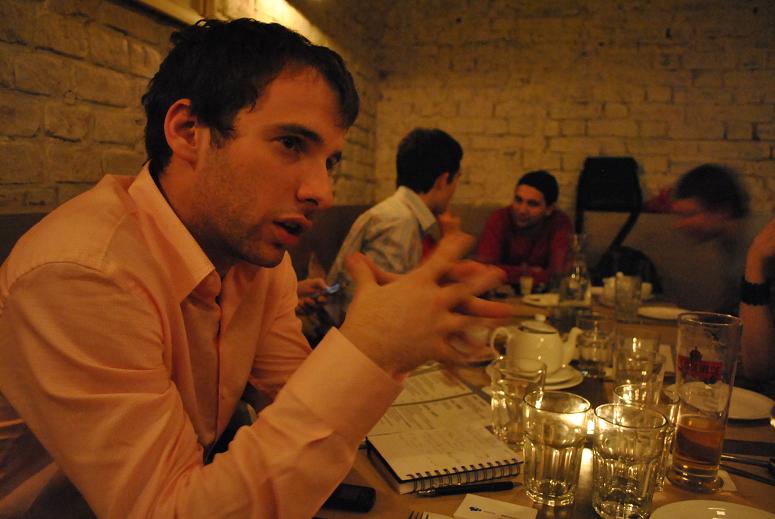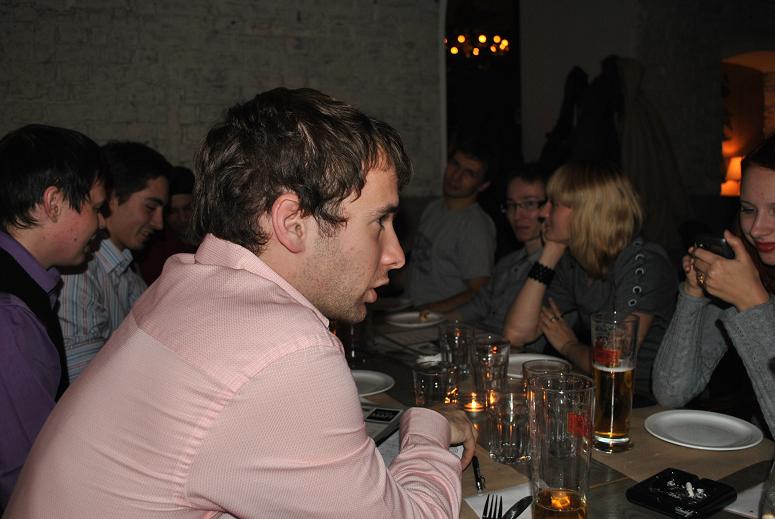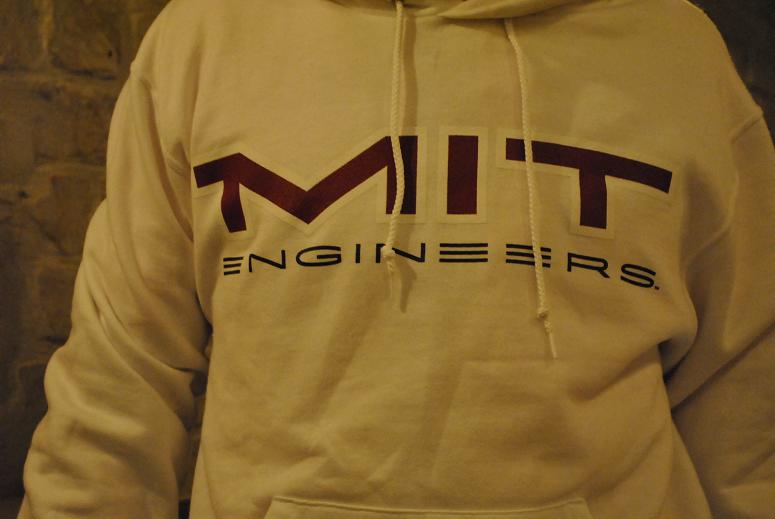Our people at the Mass Challenge

Last week, a delegation from the Moscow State University Scientific Park returned from a trip to the Boston Mass Challenge, an annual start-up competition, to Moscow.
Boston MassChallenge is one of the largest startup events in the world. This is a project competition, which takes place within two months, for which participants must develop and launch a project, after which the competition commission distributes one million dollars among the best projects.
I invited one of the members of the delegation, Webils project director Vladimir Shcherbakov ( donline ), to talk about how startups work in America and what kind of useful experience we can take in Russia.
')
One of the first questions that arose with me - why Boston? It is believed that the center of internet business in America is Silicon valley, and it would seem that exactly there should be such events. But Boston is the capital of Massachusetts, and it is there that the world-famous Massachusetts Institute of Technology (MIT) and Harvard University are located. Understanding their role and importance as one of the intellectual centers of world importance, the Boston leadership strongly supports such projects, and the Mass Challenge is supported by the state governor (in the photo above, one of the representatives of the Moscow State University delegation “pits” the Massachusetts governor).
Habr's readers are familiar with the concept of elevator pitch - a short presentation that should interest the interlocutor for the half minute that the elevator rises. So, in the States pitch all. One of the principal features of business communication there is to sell yourself every minute. The competition is so high that if you don’t talk about your project everywhere, with everyone, you will always miss some opportunities. In our business culture, this is not accepted - even in such a seemingly open business as the Internet, people behave quite closed, and it’s not even about keeping some kind of secrecy. Just "not convenient", "not understand", etc. Even at special events, people more often walk past each other than communicate. In America - the opposite. Mass Challenge opportunities to meet, introduce and sell themselves, find partners, use to the fullest. All have full pockets of business cards - their own and others.


According to Shcherbakov, “the most amazing thing was that there was an opportunity to meet absolutely all
representatives of the venture business and talk individually with each individual, talk about the project,
get feedback, know about market trends and sometimes listen to very valuable advice. In that
a huge difference between Western innovation development and ours. ”
There is even a special event that is entirely dedicated to the exchange of business cards - Unconference, which lasts only one day, and annually attracts hundreds of people, both investors and startups. Participants of the "non-conference" gather in one large room and just get to know each other. This year it coincided with the Mass Challenge, so our guys went there. Entry costs from $ 100 to $ 400.
Another interesting project dedicated to ensuring that money and projects find each other is the Angel List . In Russia, there is a similar project - StartupPoint, but it is far from being as well developed as the Angel List, where you can attract money without even having to meet with an investor through positive recommendations on the site.
By the way, startups in the USA are a separate interesting topic. After events such as the Mass Challenge, there may be an impression that startups do absolutely everything there. donline told how once in a restaurant a waiter approached them after hearing their conversation and told them about what their startup was doing by ordering tables. He made a system that throws you an SMS on the phone, when your table is free, and a convenient interface for managing this service, and installed it already in his bar, and now he is trying to sell to other bars.
This is a word that pitch everyone. Can you imagine a waiter with us, who tells the visitor about their projects? "It is inconvenient." But what am I talking about? Can you imagine our waiter who has his own startup? We still have strong class stereotypes that determine the “variety” of people according to the prestige of his work. Startups - white bone, waiters - black bone, and the idea of how this can be combined in one person breaks the patterns. However, the situation is changing, and it is just logically easy to judge that a person who is ready to do hard work for future success will win in life rather than those who are solely concerned with the status of their occupation. However, this is the lyrics. Back to the Mass Challenge story.
The format of this event assumes that start-ups will be created right during its holding: participants submit applications and then work on their projects for two months. Applications are submitted by both formed teams and singles, who still have only an idea in their head. It is already possible to find partners on site or to get people into the team, get feedback and recommendations from other participants and launch a startup.
In the Mass Challenge process, participants constantly meet with experts, conduct pitches and develop projects. All sit in a skyscraper, which is provided free of charge by the city, a whole floor overlooking Boston. In the final, there are 5-minute pitches-presentations of projects, according to the results of which a group of experts determines the winners, among whom the prize million is distributed - 3 first prizes of 100 thousand and 14 50 each, after which the projects continue to work independently. But, in a sense, everyone wins, because a huge number of investors and angels gather at the final speeches, so each project can find partners and money.
Our in the city
The MSU Science Park is a business incubator (and for some time after the opening of the Fund, also an investor), which unites 50 technology companies and more than 100 startups.
MC members do not necessarily have to be Americans, but they create businesses that will work in Boston. So if you want to open a startup in the US - welcome to the Mass Challenge next year. In other cases, foreigners come there as guests, people to see and show themselves. This is a great way to clear your brains and understand what your project is worth. And, at best, even find partners to enter international markets. Shcherbakov said that they and the team will still digest the received favorable reviews and criticisms of Webils for some time: “We would like to recommend projects that are currently at the stage of active development, be sure to go to the US, because this market really should be oriented. This trip helped us to set our priorities very well. ” Many of the program participants from Science Park received invitations from venture funds and angels to continue discussing investments in their companies.

Photo from the meeting: a souvenir from the trip - MIT sweatshirt
Lawyers
Another interesting aspect of Internet business in the United States is the importance of lawyers. In fact, this is a third party in the investor-startup relationship that performs its very important role. Law firms actively participate in events like the Mass Challenge, choosing interesting projects and often offer start-ups to take them into service for the first time for free - of course, based on long-term cooperation in the future. Legal services in the United States are very expensive, so this is a good help for startups, while lawyers get promising clients.
There is no doubt that in Russia, as the market grows and develops, their role will increase - the formalization of relations is the price for civilization. So, such interaction formats will also be in demand.
PS About habrae

Habravrestchi is a weekly gatherings that we hold in one of the Moscow cafes. This is an informal event, such an offline version of the chatter in the comments. But sometimes we communicate on serious topics, like this time.
We meet every Thursday at 20 o'clock. Tomorrow is the eighth meeting, come: cafe "Mart" , a hall with vaults. Announcements of meetings are also published on the “ Events ” blog (join, it is closed), on LiveJournal and on Twitter on the hashtag #habraparty .
I plan to continue to invite interesting people who will tell really interesting things. If you also have something to offer - welcome, I have all the contacts for contacting me in my profile . You can send questions to Vladimir Shcherbakov in a donline message or ask in the comments.
Source: https://habr.com/ru/post/132206/
All Articles